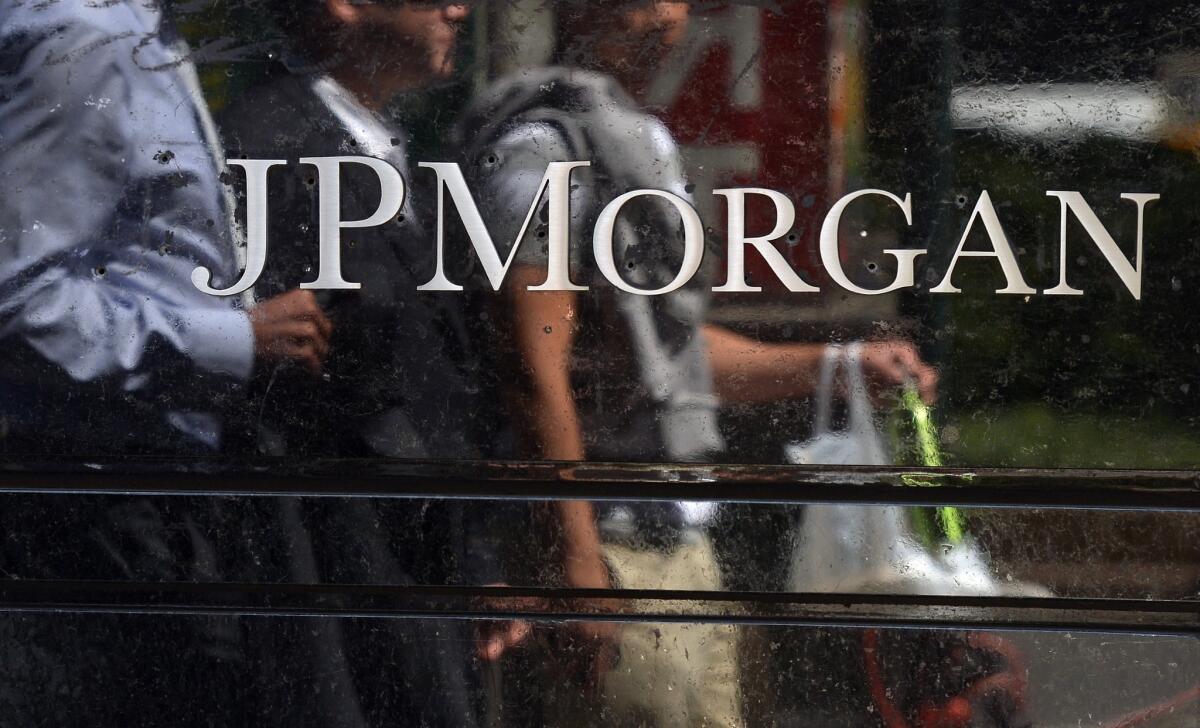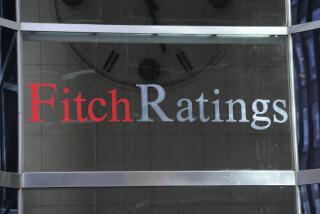Moody’s cuts ratings of four big banks on reduced bailout chance

- Share via
WASHINGTON -- Moody’s Investor Services on Friday said it cut the credit ratings for four big U.S. banks because of reduced chances the government would bail them out in a future crisis.
The ratings for bank holding company debt of JP Morgan Chase & Co., Goldman Sachs Group Inc., Morgan Stanley and Bank of New York Mellon was lowered by one notch, Moody’s said. Despite the reduction, the banks’ debt remained at investment grade.
The reductions came after Moody’s reviewed the ratings of the eight large U.S. bank holding companies as federal regulators put in place rules called for in the 2010 Dodd-Frank financial reform law designed to prevent future bailouts
Under the rules, federal officials would have the power to seize and shut down a major bank on the brink of bankruptcy if its failure threatened the financial system. The rules are designed to end the problem of banks that are too big to fail.
QUIZ: Test your knowledge about the debt limit
“We believe that U.S. bank regulators have made substantive progress in establishing a credible framework to resolve a large, failing bank,” said Robert Young, Moody’s managing director.
“Rather than relying on public funds to bail out one of these institutions, we expect that bank holding company creditors will be ‘bailed in’ and thereby shoulder much of the burden to help recapitalize a failing bank,” he said.
Moody’s decided not to change the ratings for senior holding company debt of the other four large banks it reviewed: Bank of America Corp., Wells Fargo & Co., Citigroup Inc. and State Street Corp.
All eight banks received bailouts from the $700-billion Troubled Asset Relief Program during the 2008 financial crisis. They repaid the money.
The Government Accountability Office on Thursday issued a report that said large banks -- those with more than $50 billion in total assets -- made greater use of bailout programs than smaller banks.
The report said provisions in the 2010 financial reform law to restrict future bailouts have not been fully implemented and “the effectiveness of some provisions remains uncertain.”
ALSO:
California exports rise sharply in September
California’s unemployment benefits fund is mired in debt
Obama’s call for insurers to extend canceled health plans splits state
More to Read
Inside the business of entertainment
The Wide Shot brings you news, analysis and insights on everything from streaming wars to production — and what it all means for the future.
You may occasionally receive promotional content from the Los Angeles Times.











